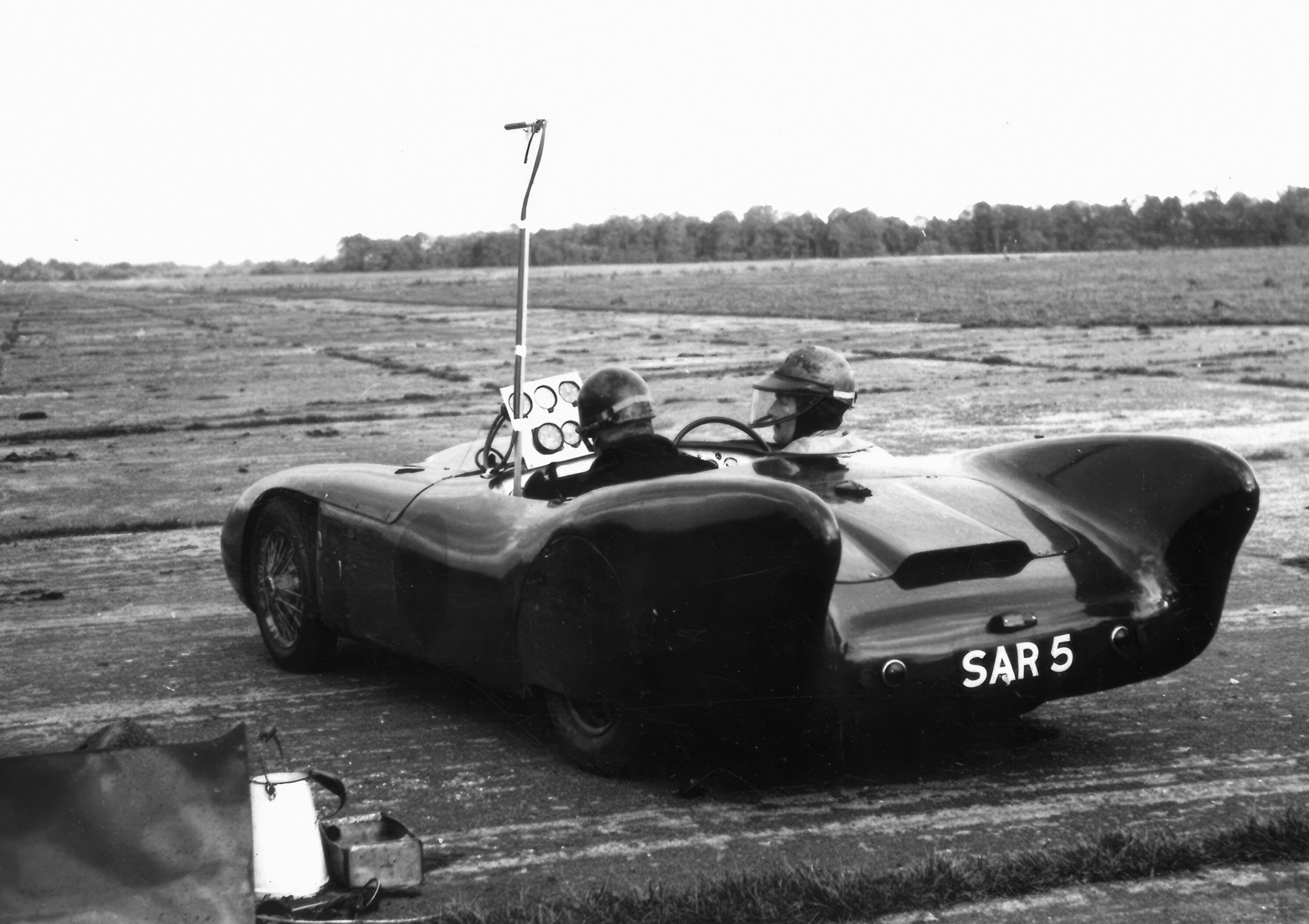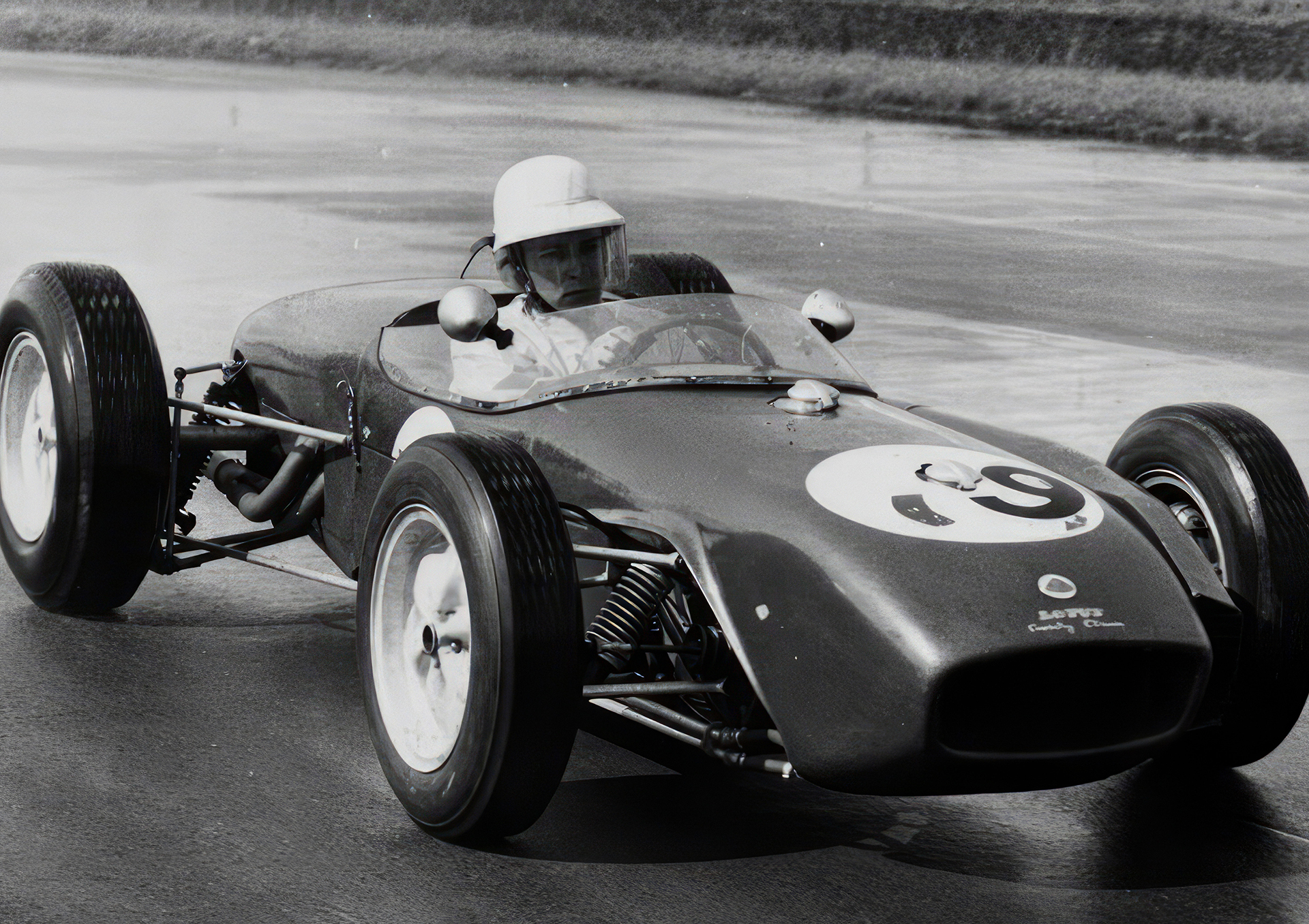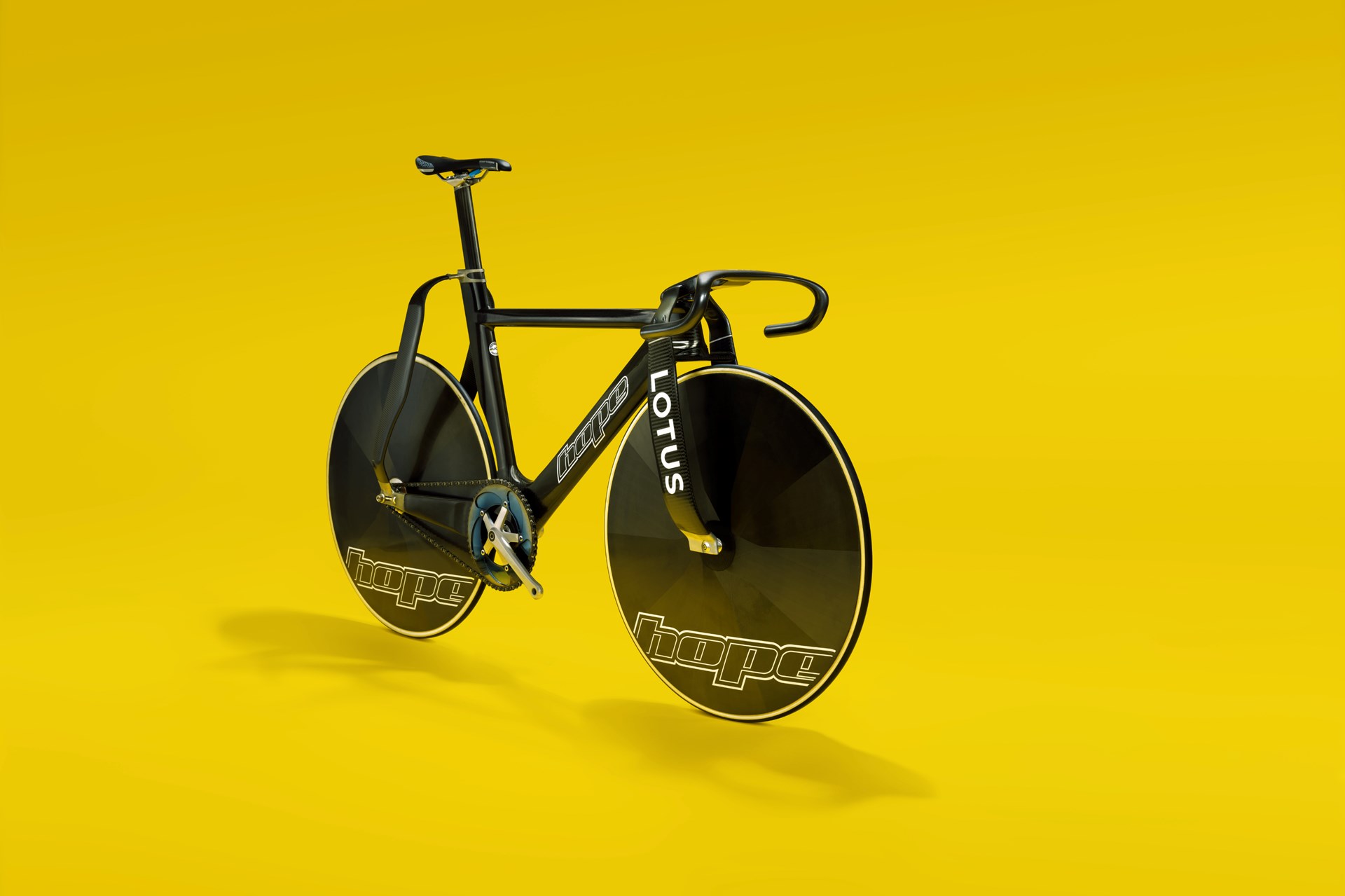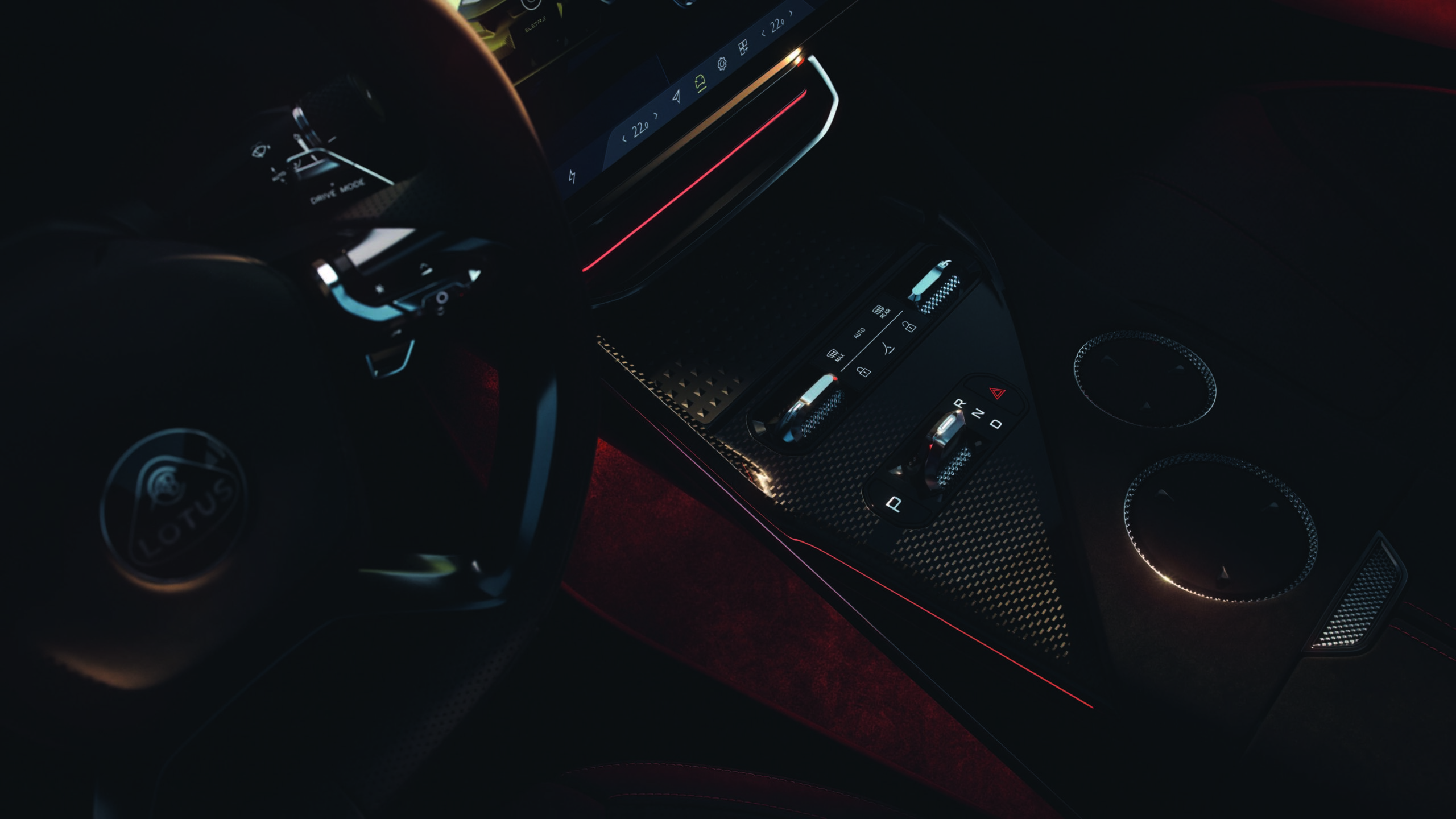
Our History
The history of Lotus is the history of progressive engineering.
Lotus’ track record includes world-first innovations on racing cars,
road cars and beyond. Explore our heritage here.

MOTORSPORT PIONEERS
1947 – The First Lotus
Built and campaigned by Colin and Hazel Chapman in trials and club races.
1961 – Lotus Type 21
First F1 car to put the spring and damper unit inboard for improved aerodynamics.
1962 – Lotus Type 25
First F1 car to use a fully-stressed monocoque chassis.
1965 – Lotus Type 38
First rear-engined car to win the Indianapolis 500.
1966 – Lotus Type 43
First successful use of the engine as a structural member in F1.
1968 – Lotus Type 49
First F1 car to use aerofoil wings.
1981 – Lotus Type 88
First to design, produce, test and arrive on the F1 grid with a carbon-fibre monocoque.
1981 – Lotus Sunbeam
First Lotus car to claim World Rally Championship constructors’ title.
1983 – Lotus Type 92
First racing car to use active suspension.
2023 – Lotus Type 131
Emira GT4 takes 1-2 on debut at Macau.

INNOVATION FOR THE ROAD
1957 – Lotus Type 14 Elite
Introduces Chapman strut suspension and the composite monocoque to road cars.
1963 – Lotus Type 28 Cortina
The first example of Lotus enhancing another manufacturer’s road car.
1972 – Type 900 Series engine
The first all-aluminium 16-valve, 4-cylinder DOHC road car engine. First used in
the Jensen-Healey, then the Lotus Elite, Eclat, Excel, Esprit and Sunbeam.
1976 – Lotus Type 79 Esprit S1
Introduces split body mould process, later used to create separate Eclat and
Excel road cars on the same platform.
1987 – Lotus Type 82 Esprit X180
Debuts Lotus Engineering-developed Vacuum Assisted Resin Injection (VARI)
composite body manufacturing process.
1989 – Lotus Type 100 Elan
Introduces raft suspension to virtually eliminate front-wheel drive torque steer.
1990 – Lotus Type 104 Carlton
Legendary super-saloon is world’s fastest four-door production car at launch
and improves sporting credentials for Lotus owner General Motors.
1996 – Lotus Type 111 Elise
First road car with bonded aluminium extrusion chassis and suspension
uprights. First road car with composite crash structure.
2019 – Lotus Type 130 Evija
Revealed as most powerful production car ever with over 2,000 PS.
2024 – Lotus Type 131 Emira
The Emira becomes the fastest-selling Lotus ever, passing 10,000
cars shipped from Hethel within three years of its launch.

FORWARD-LOOKING ENGINEERING
1950s – Vanwall F1 team
Colin Chapman’s first consultancy project; led to Vanwall’s F1 success.
1980s – Fully Active Suspension.
First used in F1, then on Lotus SID and Corvette ZR-1 to prototype
potential road car applications.
1992 – Active Noise Cancellation.
Lotus Active systems continue with the 1992 Nissan Bluebird, the first
road car to use active noise cancellation.
2000 – Active Valvetrain Research.
Lotus demonstrates working active valvetrain prototypes to support
valvetrain benchmarking as well as design and analysis of new systems.
2008 – Tesla Roadster.
Lotus provides platform, expertise and manufacturing for the world’s
first electric sports car.
2009 – Range Extender.
Lotus Engineering develops the world’s first purpose-built range
extender engine as part of Limo Green collaboration.
2009 – Omnivore Engine.
Multi-fuel 2-stroke engine unveiled at the Geneva Motor Show as
a collaborative research demonstrator.
2010 – Lotus Evora 414E.
Range-extender sports car with simulated gearbox, sound synthesis
and torque vectoring, later rebodied as the Infiniti Emerg-E.
2017 – Toyota Yaris GRMN.
Lotus Engineering delivers engine controls, supercharging and Lotus
throttle response in first client application of Lotus engine controller.
2024 – Paris Olympic Bike.
Team GB sets multiple world records using the latest Olympic
bike co-developed by Lotus Engineering, Hope and Renishaw.

